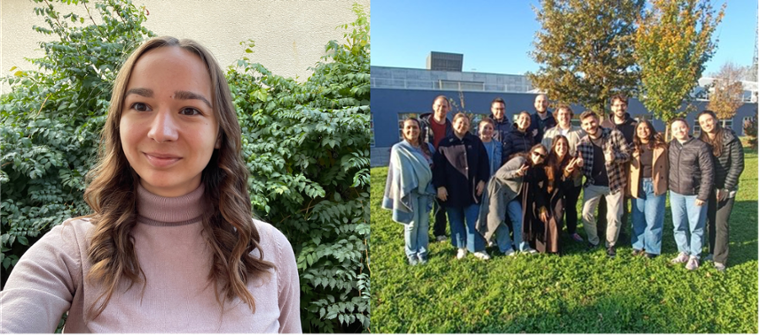PRESS RELEASE
After being part of the 2019 first wave of 17 alliances awarded Erasmus+ financing for the pilot phase of the European Universities Initiative, EUTOPIA is again among the most promising consortia chosen to structure a role model for the future European Higher Education Area.
27 July 2022. Today the European Commission has announced the results of the secondforall of funding for the European University Alliances (link). With an ambitious project titled EUTOPIA MORE, we are proud to be among the first consortia granted with EC funding for this second phase. We take it as a sign that our alliance has shown effectiveness in its actions to complete a student-centred European University model that boosts academic excellence and social inclusion. We believe in a collaborative European Higher Education ecosystem that fosters the transformation of education, research and innovation while enabling inclusiveness and substantial partnerships with our local stakeholders. The EUTOPIA alliance is ready to embark upon this second phase, becoming shortly a legal entity laying the foundations of a ten-year partnership.
Our pilot EUTOPIA2050 project (2019-2022) rested on the conviction that today’s challenges call for a transformation of universities through collaboration, which implies re-thinking both the skills that universities need to provide to students and staff, and the way that research can achieve high impact, within academia and beyond. This conviction has been reinforced by the new developments: the COVID-19 pandemic, which catalysed the digital functioning of universities; the growing awareness of the issues related to climate change, which require a shift in social models and individual behaviours; or the tragic war in Europe’s neighbourhood, which demonstrates the continuous need to defend European values. Such large-scale challenges can only be addressed by channelling interdisciplinary skills and operating at an international level. Furthermore, knowledge is becoming ever more complex and subject to change, making a life-long learning perspective absolutely necessary. We firmly believe that solutions to contemporary challenges cannot be engineered solely from the top but be built from the bottom-up, in a flexible fashion, relying on the distributed expertise of various communities.
* * *
The EUTOPIA European University alliance brings ten European universities aiming to become by 2025 an open, multicultural, confederated operation of connected campuses.
The partner universities are
- Babeș-Bolyai University, Cluj-Napoca (Romania)
- Vrije Universiteit Brussel (Belgium)
- Ca’ Foscari University of Venice (Italy)
- CY Cergy Paris University (France)
- Technische Universität Dresden Germany)
- University of Gothenburg (Sweden)
- University of Ljubljana (Slovenia)
- NOVA University Lisbon (Portugal)
- Pompeu Fabra University-Barcelona (Spain)
- University of Warwick (United Kingdom)
European Universities are transnational groups of higher education institutions from across the EU. They ensure the quality, inclusion, and innovation of European Higher Education with the financial allowance from Erasmus+ and Horizon 2020 programmes. This initiative is directed to deepen institutional cooperation between higher education institutions, making it systemic, structural, and sustainable, fostering researchers, staff, and students’ mobility. European Universities include institutions ranging from applied sciences, technical universities and film and media art schools to comprehensive and research-intensive universities. In a recent survey conducted by the European Commission, “among the already existing 17 European Universities selected in 2019, 96% of the institutions think they would have been better prepared to face the coronavirus pandemic if their European University had already been fully operational. More than 60% of them consider that being part of a European University has already been helpful in addressing the current difficulties linked to the crisis. Good examples include the creation of virtual inter-university campuses, offering joint blended courses and common teaching units integrated in the curricula of all the member universities” (source).

